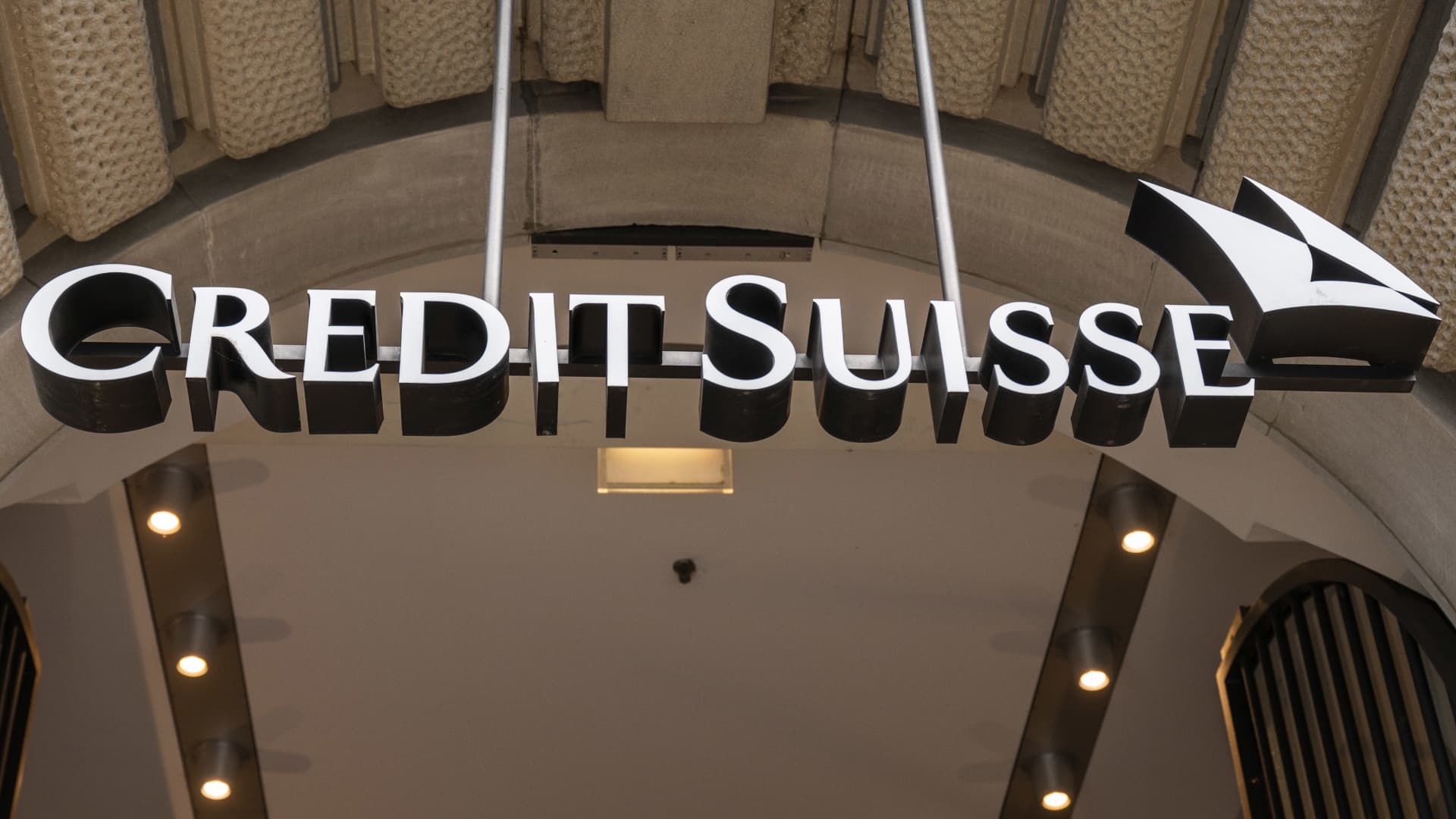Troubled bank Credit Suisse offered to buy back up to 3 billion Swiss francs ($3.03 billion) of debt securities Friday, as it navigates a plunging share price and a rise in bets against its debt.
The Swiss lender also confirmed that it is selling its famous Savoy Hotel in Zurich’s financial district.
In a statement Friday regarding the offer to repurchase debt, Credit Suisse said, “The transactions are consistent with our proactive approach to managing our overall liability composition and optimizing interest expense and allow us to take advantage of market conditions to repurchase debt at attractive prices.”
It comes after Credit Suisse’s shares briefly hit an all-time low earlier this week, and credit default swaps reached a record high, amid the market’s skittishness over its future.
The embattled lender is embarking on a massive strategic review under a new CEO after a string of scandals and risk management failures, and will give a progress update alongside its quarterly earnings, scheduled for Oct. 27.
The most costly of the scandals was the bank’s $5 billion exposure to hedge fund Archegos, which collapsed in March 2021. Credit Suisse has since overhauled its management team, suspended share buybacks and cut its dividend as it looks to shore up its future.
On Friday, the bank announced a cash tender offer relating to eight euro- or sterling-denominated senior debt securities, worth up to 1 billion euros ($980 million), along with 12 U.S. dollar-denominated securities worth up to $2 billion. The offers on the debt securities will expire by Nov. 3 and Nov. 10, respectively.
Credit Suisse shares were trading more than 7% higher following the news Friday, however they remain down around 50% year to date.
No ‘Lehman moment’
Although rising credit risk among European banks may bring back memories of the 2008 global financial crisis, analysts have stressed that capital buffers are now significantly higher.
MSCI Research also highlighted in a note Thursday that although high in historical context — particularly for Credit Suisse and Deutsche Bank — the volume of credit default swaps does not yet indicate imminent sectorwide default.
Credit Suisse and Deutsche Bank credit spreads have reached historically wide levels, while those for other major European banks have also expanded, but MSCI said the slope of credit spread curves has generally steepened, rather than inverting.
“Inversion of the curve would reflect investors’ short-term default concerns, and this was observed in 2008 across banks. Credit Suisse is the only major bank for which the curve has recently flattened,” MSCI Research Executive Directors Gergely Szalka and Thomas Verbraken noted.
“A standard model using current CDS pricing shows a market-implied six-month default probability of approximately 2% and 1% for Credit Suisse and Deutsche Bank, respectively, and a five-year default probability of 23% for Credit Suisse and 17% for Deutsche Bank.”
While heightened, Szalka and Verbraken said these market-implied probabilities did not suggest imminent default over the short term, but market concern about the viability of both banks over the longer term was more apparent.
“All that to say, the market data suggests that a Lehman moment for European banks does not seem likely for the time being,” they concluded.
‘Positive development’
Johann Scholtz, equity analyst at Morningstar, told CNBC on Friday that the debt repurchase was a “positive” signal from Credit Suisse to a skittish credit market that it is “not in dire straits” with regards to liquidity.
He also dismissed the notion that the sale of the Savoy Hotel in Zurich was part of a “dash for liquidity,” suggesting the cash generated would not be sufficient to address any substantial liquidity issue.
“I think it would be fair to say that there’s going to be quite a lot of write-downs that are going to come down in the third-quarter results. I think they’ll probably look to ‘kitchen sink,’ because I think that’s really what the market is also looking for,” Scholtz said.
“I think the reason for maybe selling off this hotel is there’s going to be a lot of non-recurring items in all of that, so it can maybe, for what it’s worth, let that position look a bit better if they can book a profit on selling the hotel.”
